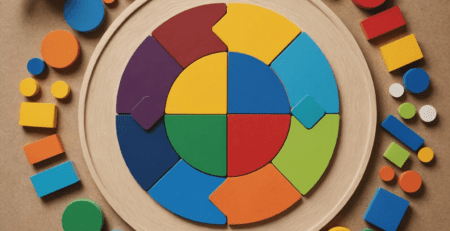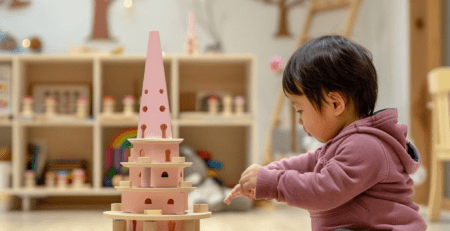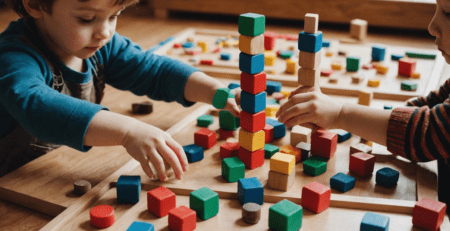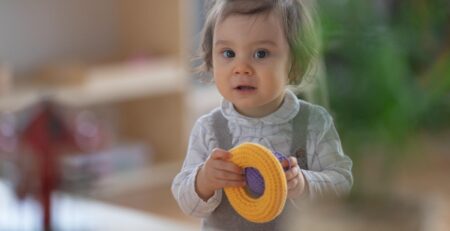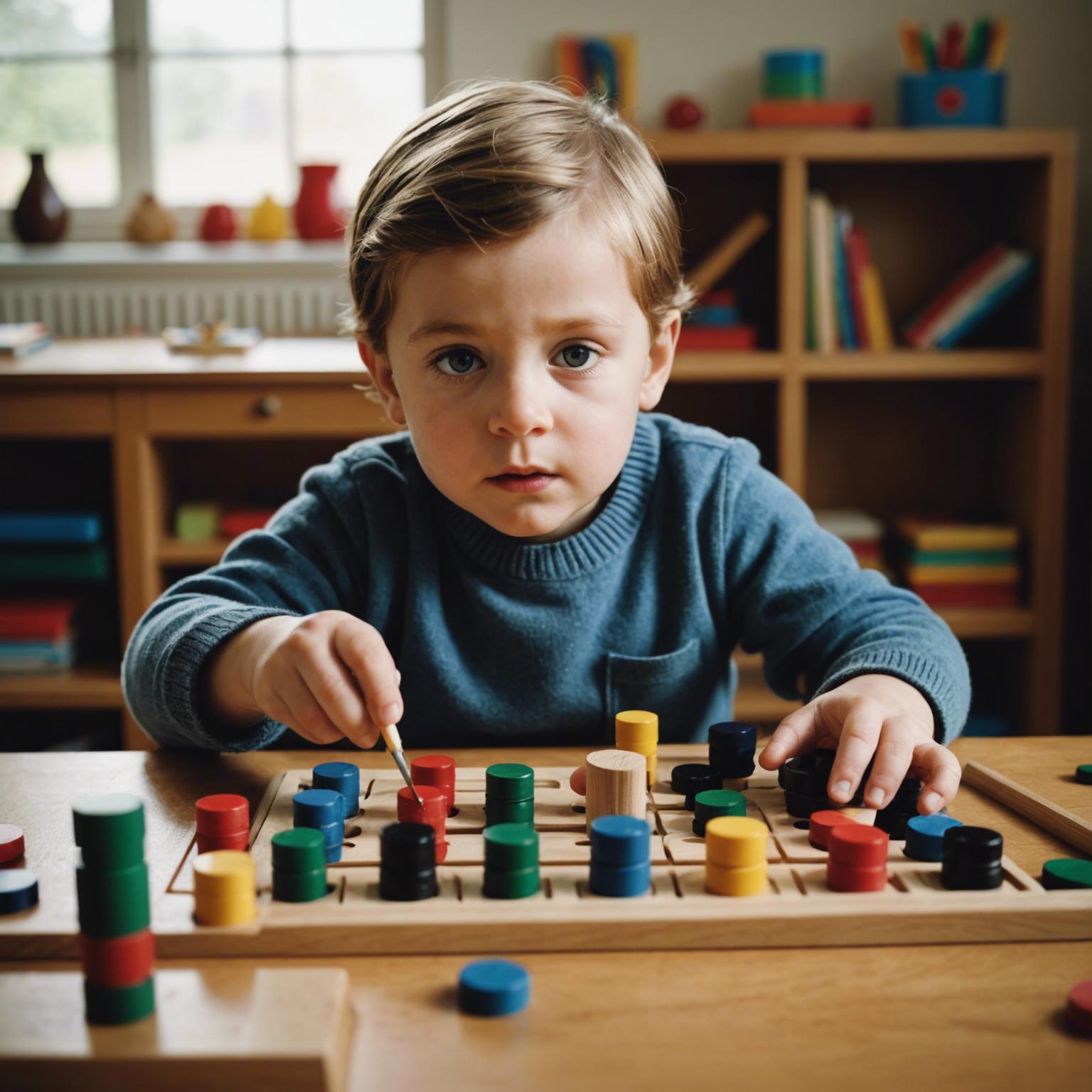
5
Montessori vs. Steiner: Choosing the Best Approach
Enter the curious world of early childhood education, where two contrasting philosophies, Montessori and Steiner, offer unique approaches to nurturing young minds. Both methods have captured the imaginations of educators and parents around the world, but what sets them apart? From the structured independence of Montessori to the holistic development of Steiner, this article will explore the key principles and philosophies behind these renowned educational movements, providing insight into the diverse ways in which we can guide children on their path to learning and growth. Join us as we delve into the fascinating realm of Montessori and Steiner education, and uncover the wisdom behind these influential pedagogical approaches.
Table of Contents
- Montessori vs. Steiner: Understanding the Differences
- The Montessori Approach to Education
- The Steiner (Waldorf) Philosophy in Education
- Key Similarities and Differences Between Montessori and Steiner
- Choosing Between Montessori and Steiner for Your Child’s Education
- Q&A
- To Wrap It Up
Montessori vs. Steiner: Understanding the Differences
So, you are considering alternative education for your child and have come across the Montessori and Steiner philosophies. Both offer a unique approach to learning, but what are the key differences, and which one might be the best fit for your child? Let’s dive in and explore the distinguishing features of each educational philosophy.
Montessori Education
Focus: Montessori education emphasizes independence, freedom within limits, and respect for a child’s natural psychological, physical, and social development.
Teaching Method: It is child-led and follows a curriculum that is individualized to each student’s needs and interests, promoting hands-on, sensory-based learning.
Environment: The classroom is carefully prepared to encourage self-directed exploration and discovery, with age-appropriate materials and activities that foster a love of learning.
Steiner Education
Focus: Steiner education, also known as Waldorf education, emphasizes holistic development, integrating academic, artistic, and practical activities.
Teaching Method: It is teacher-led, integrating arts, music, and movement into the curriculum to accommodate the child’s developmental stages and engage the whole child.
Environment: The classroom environment is warm and nurturing, focusing on creativity, imagination, and artistic expression, with an emphasis on outdoor activities and natural materials.
Montessori education focuses on individualized, hands-on learning within a carefully prepared environment that encourages independence and self-discipline, while Steiner education emphasizes holistic development, creativity, and imagination through an integrated, arts-based approach. Understanding these differences can help you make an informed decision about the best educational approach for your child.
The Montessori Approach to Education
When it comes to alternative education approaches, the Montessori and Steiner methods are often compared and contrasted. Both of these approaches offer unique and individualized ways of teaching children, emphasizing hands-on learning and a holistic approach to education.
Montessori
Montessori was developed by Dr. Maria Montessori in the early 20th century. This method is centered around the belief that children are naturally curious and capable of directing their own learning. Montessori classrooms are typically mixed-age and feature a prepared environment full of hands-on learning materials, where children are encouraged to explore and learn at their own pace. The focus is on individual growth and self-discovery, with teachers acting as guides rather than lecturers.
- Key Features of Montessori Education:
- Child-led learning
- Hands-on materials
- Individualized pace
- Emphasis on independence
Steiner
The Steiner approach, also known as Waldorf education, was developed by Rudolf Steiner in the early 20th century. This method emphasizes the spiritual, emotional, and physical development of the child, in addition to academics. Steiner classrooms are designed to create a warm, home-like atmosphere, and teachers stay with the same class for several years to foster strong relationships and understanding of each child’s unique needs. The curriculum is arts-focused and encourages creativity and imagination.
- Key Features of Steiner Education:
- Emphasis on creativity and imagination
- Artistic and holistic approach
- Integration of academics and personal development
- Multi-year relationships with teachers
Both the Montessori and Steiner approaches offer unique perspectives on education, each with its own strengths and emphases. Parents and educators may find that one of these methods resonates more with their own beliefs and goals for their children’s education.
The Steiner (Waldorf) Philosophy in Education
The Steiner (Waldorf) philosophy in education is a holistic approach to learning that focuses on nurturing a child’s physical, emotional, and intellectual development. This philosophy is based on the teachings of Rudolf Steiner, an Austrian philosopher and educator, and emphasizes the importance of creativity, imagination, and experiential learning. Steiner schools are known for their non-traditional approach to education, with an emphasis on play-based learning, arts integration, and a strong connection to nature.
One of the key principles of the Steiner philosophy is that every child is unique and should be allowed to develop at their own pace. Unlike traditional education systems, Steiner schools do not rely on standardized testing and grading, but instead focus on holistic assessments of a child’s progress. The curriculum is designed to engage children in a wide range of subjects, including music, painting, drama, and movement, fostering a well-rounded education that encourages creativity and critical thinking.
Montessori or Steiner?
When it comes to choosing the right educational approach for your child, both Montessori and Steiner philosophies offer unique and valuable perspectives. While Montessori emphasizes independence and hands-on learning, Steiner schools focus on nurturing a child’s creativity and imagination. Both philosophies strive to provide a holistic and child-centered approach to education, but the methods and emphases differ. Ultimately, the decision between Montessori or Steiner education will depend on the individual needs and preferences of the child and their family.
Key Considerations
When considering Montessori or Steiner education, it’s important to keep the following factors in mind:
– Individual Learning Style: Consider your child’s learning style and what approach would best support their development.
– Philosophy and Values: Research the core principles of both Montessori and Steiner education to see which aligns most closely with your own values and beliefs.
– School Environment: Visit local Montessori and Steiner schools to get a feel for the environment and see which feels like the best fit for your child.
– Community and Support: Consider the sense of community and support offered by each educational approach, including parent involvement and extracurricular activities.
Choosing between Montessori or Steiner education is a personal decision that requires careful consideration. By understanding the unique qualities of each philosophy and evaluating your child’s individual needs, you can make an informed choice that sets the stage for a positive and enriching educational experience.
Key Similarities and Differences Between Montessori and Steiner
When it comes to alternative education, Montessori and Steiner are two of the most well-known methods. While both aim to provide a holistic and child-centered approach to learning, there are some key differences that set them apart. Understanding these differences can help parents make an informed decision about which approach would best suit their child’s needs.
Similarities:
Unsurprisingly, Montessori and Steiner education share a number of key similarities. Both emphasize the importance of nurturing a child’s natural curiosity and creativity, and promoting self-directed learning. They also both prioritize a strong sense of community and collaboration, encouraging children to work together and learn from one another. In addition, both methods place a strong emphasis on the arts and practical skills, recognizing the value of hands-on, experiential learning.
Differences:
Despite these similarities, there are some fundamental differences between Montessori and Steiner education. One notable distinction is their approach to structure and freedom. While Montessori places a high value on independence and self-discipline within a structured environment, Steiner education tends to provide a more flexible, fluid approach to learning, utilizing a consistent daily rhythm and routine. Additionally, Montessori tends to focus more on academic and cognitive development, with a strong emphasis on individual progress and achievement. On the other hand, Steiner education places a greater emphasis on the emotional and spiritual development of the child, incorporating imaginative play and a deep connection to nature and the natural world.
Both Montessori and Steiner education offer unique and valuable approaches to early childhood learning. While they share some common principles, their differences lie in the finer details of their educational philosophies. Understanding the key similarities and differences between the two can help parents make an informed decision about what type of education will best suit their child’s individual needs and learning style. Ultimately, both methods offer a rich and holistic approach to learning, emphasizing the importance of nurturing the whole child.
Choosing Between Montessori and Steiner for Your Child’s Education
So, you’re considering the best educational path for your child, and you’re faced with the decision of choosing between Montessori and Steiner education. Both educational systems offer unique approaches to learning and development, but it’s important to understand the key differences between the two in order to make an informed decision for your child’s future.
What is Montessori Education?
• The Montessori method is based on the philosophy of self-directed activity, hands-on learning, and collaborative play.
• Children in a Montessori environment are encouraged to explore and learn at their own pace, with a focus on independence, freedom within limits, and respect for a child’s natural development.
• The curriculum is designed to foster creativity, critical thinking, and social skills, and it emphasizes the importance of mixed-age classrooms to promote peer learning and mentorship.
What is Steiner Education?
• Steiner education, also known as Waldorf education, is based on the holistic development of the child – focusing on intellectual, artistic, and practical skills.
• The curriculum is structured around the idea that children learn best through sensory experiences, creative arts, and hands-on activities.
• Steiner schools emphasize the importance of rhythm, natural materials, and a nurturing environment to foster a child’s emotional, intellectual, and physical growth.
Which is the Right Choice for Your Child?
When deciding between the Montessori and Steiner approaches, it’s essential to consider your child’s unique learning style, personality, and developmental needs. Montessori education may be best suited for children who thrive in a self-directed and independent learning environment, while Steiner education may be more beneficial for children who are drawn to creative, artistic, and holistic experiences. Ultimately, the decision should be based on what will best support your child’s individual growth and development.
Q&A
Q: What is the Montessori method and how does it differ from the Steiner approach?
A: The Montessori method emphasizes independence and self-directed learning, while the Steiner approach focuses on holistic development and the importance of imagination and creativity.
Q: What are the main principles of the Montessori method?
A: The main principles of the Montessori method include mixed-age classrooms, hands-on learning materials, and a focus on the development of practical life skills.
Q: How does the Steiner approach incorporate the arts into education?
A: The Steiner approach believes in the importance of artistic expression in education, integrating subjects like painting, music, and drama into the curriculum to stimulate creativity and imagination.
Q: What are the main differences in the classroom environment between Montessori and Steiner schools?
A: Montessori classrooms are typically structured and organized, with a focus on individual work and self-guided learning. On the other hand, Steiner classrooms often have a more organic and natural feel, with an emphasis on creating a nurturing and harmonious environment.
Q: How do the Montessori and Steiner approaches view the role of the teacher?
A: In the Montessori approach, the teacher is seen as a facilitator and guide, encouraging children to explore and discover their own interests. In the Steiner approach, the teacher is viewed as a mentor and role model, guiding students through a balanced and holistic education.
Q: What are the benefits of a Montessori education versus a Steiner education?
A: Montessori education promotes independence, self-discipline, and academic achievement, while the Steiner approach focuses on nurturing creativity, social awareness, and emotional intelligence.
Q: How can parents decide between a Montessori or Steiner school for their child?
A: Parents should consider the individual needs and learning styles of their child, as well as their own educational philosophy and values, when choosing between a Montessori or Steiner school. visiting both types of schools and speaking with teachers and staff can also help in making an informed decision.
To Wrap It Up
Both the Montessori and Steiner education systems offer unique approaches to learning and child development. While Montessori emphasizes independence, hands-on learning, and structured environments, Steiner focuses on creativity, imagination, and holistic development. Ultimately, the choice between the two methods depends on the individual needs and preferences of the child and their family. Both systems are designed to foster a love of learning and support the growth of well-rounded individuals. By understanding the principles and practices of each approach, parents and educators can make informed decisions to provide the best educational experience for children. Regardless of the chosen path, both Montessori and Steiner offer valuable philosophies and methods that can contribute to the development of confident, compassionate, and knowledgeable individuals.


